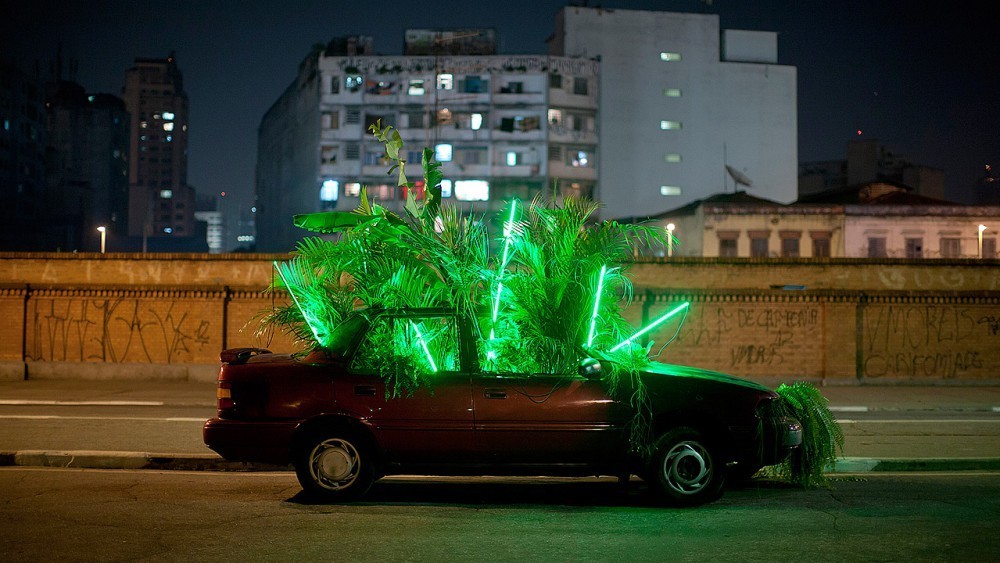BijaRi in residence at the CRP/

Bijari residence will take place in Douchy-les-Mines from May 12 to May 25, 2019. Geandre Tomazoni and Mauricio Brandao will travel for the BijaRI collective.
The CRP /is inviting the Brazilian artistic collective BijaRi based in São Paulo to lead a participative and collaborative project with the inhabitants of the City of Douchy-Les-Mines.
Being a collective of artists, architects and urbanists that place our artistic practice in relation to the city, its fluxes and communities, we are interested in the potential of (relational) art being a means of creating knowledge. If the experience of constructing an artwork is an instance of teaching and learning, where lays art educational potential? When and how this mediation happens?
Bijari`s residency program at CRP in Nord Pas-the-Calais will seek to add to this initial reflection, the distant gaze that inevitably suppose the arrival of the foreigner, of the intruder that needs to face a learning process and to undertake the reconstruction of a (visual) memory of a territory without stigmas nor prejudices.
This position aggregates a new way of looking that irreversibly will fusion and consent (or not) with the images, the actions, the words and the experiences of the local community.
As urbanists we are intrigued by the palimpsest processes of the shaping and reshaping of cities. How an urban landscape develop, which forms of collective life they promote (or deny). Which images, stories and discourses they support or erase and how these ideas are inscribed in the built environment.
We are especially interested in exploring Nord-Pas-de-Calais transition from (coal mining) industry to an economy of culture, leisure and consumption. How urban structures adapt to their elimination of the productive cycle? Have they become disposable or have they entered a new productive regime? How the memories, images and monuments of this recent past resonate and interact with contemporary post-industrial globalization. Have they been (or can be) recycled? Can we recuperate and reinterpret social memories inscribed in this landscape? Can memories, as objects, also be recycled?
Which new images can we produce that connect the visual, the verbal and the written? Do these images have the power to provoke dissent and disturb the official “information system” that produces “reality”?
The project will depart form the reflection of how do we negotiate, consent and represent both reality and memory collectively.
For that goal Bijari will further investigate the possibility of connecting to a specific community, neighborhood or building.
Grupo BijaRi is a collective of artists, architects, and designers who met in 1997 as students in the School of Architecture and Urban Planning at the University of São Paulo. The collective’s formative interests continue to frame their investigations of the struggles that various social actors and groups endure in the fight for the right to the city. The group aims to find a synthesis between art practice, urban design, and political action through projects that lie in the intersection of art, spatial critique, and urban life.
With the aid of a diverse range of resources and technologies, including poster campaigns, cartographies, large-scale video projections, installation, performance, and VJing, Bijari creates tactical actions in public spaces, independent of established circuits of art. Operating through these cracks and gaps, Bijari is interested in the friction of such realities in order to configure new poetical and political places.